Review for The Swordsman Of All Swordsmen
Introduction
A couple of years ago, Eureka went all in on Joseph Kuo’s filmography with the Cinematic Vengeance boxset, collecting eight of his films, going all Deadly Masters and Fearless Shaolin. Personally, I found it to be something of a mixed bag, but sixties and seventies kung fu isn’t exactly my bag. But there are more than just these eight films in Joseph Kuo’s filmography, and now Eureka Entertainment bring us two more, with The Swordsman of All Swordsmen, and a bonus disc with The Mystery of Chess Boxing. You can tell my age given that I think it should be the other way around. The Wu-tang Clan were heavily influenced by kung-fu cinema, and The Mystery of Chess Boxing offers two of those influences.
Note that the latter movie is restricted to this Limited Edition release only; there will be just 2000 copies in the UK.
Introduction: The Swordsman of All Swordsmen
A stranger rides into town and rescues a girl from the man who mortally wounded her father, slaying that man in the process. In gratitude, her dying father offers her hand in marriage to the man who saved her, but Tsai Ying-Jie is not in the mood to settle down. When he was a child, Tsai Ying-Jie witnessed the brutal murder of his family by five men who sought his father’s Spirit Chasing Sword. He spent his life learning how to wield a sword like a master so he could avenge his parents. He wasn’t looking to save a potential bride, but the man he killed was the first of the five. As he continues on his mission, things are complicated by another master swordsman looking to challenge him to simply see who the best is, and it turns out that revenge is a lot more complicated than he thought.
The Disc: The Swordsman of All Swordsmen
The Swordsman of All Swordsman gets a 2.39:1 widescreen 1080p transfer with the choice between PCM 2.0 Mono Mandarin and English, with optional English subtitles. There are disclaimers at the head of the film, for the video transfer and restoration, and the VHS sourced English dub, so set your expectations accordingly. The video transfer exceeds those expectations though, clear and sharp for the most part and with consistent colours. Detail levels are good despite the odd soft scene, contrast is good, and despite the warning of print damage, there’s not a lot here aside from the occasional hair in the shutter. I took the disclaimer’s advice and stuck with the Mandarin audio for my first viewing, and it was clear, adequate in bringing across the action, but with just a hint of muddiness and flatness when it came to the dialogue. The subtitles are accurately timed and free of typos.
Extras: The Swordsman of All Swordsmen
The disc boots to a static menu, which offers options to play the film, and a featurette.
The featurette is Return of the Master: Interview with Director Joseph Kuo (12:15).
Click on the film, and you get a new menu offering the audio options, and the commentary on the film from Frank Djeng and John Charles.
Conclusion: The Swordsman of All Swordsmen
The Swordsman of All Swordsman is a wuxia movie from 1968. That’s not my favourite genre, and it’s not the period of Hong Kong (or Taiwan) cinema that I’m most au fait with. Having said all of that, I found a fair bit to appreciate in this film. The production values are excellent, and the sets and locations are impressive, especially for the final action sequence in the film. The story does feel tired though, and I didn’t find the kind of spark that I needed to get me invested in the characters, and hooked to the narrative. The film felt like a tired and clichéd revenge movie, although that’s a comment on a film from 1968, made in 2024. I’m sure it was fresh and exciting when it was originally released.
It’s a revenge movie, with the hero wielding a sword with preternatural proficiency, and as physically adept as any superhero. He’s single minded when it comes to revenge, and he’s not about to show any mercy. That’s quite wise too, given that the five men he’s targeting are just as superpowered as he is, and they also have armies of faceless minions to throw against him to wear him down, before he gets to fight the final bosses. We follow him on his travels seeking out these warriors one by one, but it isn’t long before there’s a spanner in the works in the ultimate swordsman Black Dragon, who occasionally appears to help him, but only so that he can challenge him in turn.
It’s a rather predictable narrative, one that I found quite tedious, which is a shame as the film changes gear in the final act, where the protagonist’s fervent desire for revenge is questioned when he develops a relationship with Swallow, a feisty warrior girl. His single-minded devotion to revenge begins to crumble, but is thrown totally into question when he learns of Swallow’s true identity.
The Swordsman of All Swordsmen is a well made film, if of its time, and for me took a little too long to introduce the kind of complexity to its story that I could have appreciated earlier in its runtime. Apparently it’s the first in a Tsai Ying-Jie trilogy from Joseph Kuo, and I wonder if the rest of the trilogy is on Eureka’s radar.
6/10
Introduction: The Mystery of Chess Boxing
Ghost Face Killer Wan Chun-Shan is back, hunting down and killing the kung-fu masters that wronged him. He’s already killed the father of Ah Pao, leaving the young man determined to get revenge. But he isn’t the most skilled fighter, which is why he tries attending the local kung-fu school. He doesn’t get much of an education, although he certainly gets bullied and belittled. It’s the school’s cook that points him to a worthy master. Chi Siu Tien is the old man that makes a living playing chess for money in the street, but he has a secret.
The Disc: The Mystery of Chess Boxing
The film gets a 2.35:1 widescreen 1080p transfer on this disc, with the choice between PCM 2.0 Mono Mandarin, Cantonese, and English, with burnt in English and Chinese subtitles. Apparently all negatives of this film have been lost or destroyed, and it seems all interpositives too. Instead they had to source the only known surviving theatrical print of the film in the US. It’s been through the projector a few times in its life, so there are one or two missing frames (not the deliberate frames edited out of the action sequences to increase impact), and a few signs of print damage, scratches and dirt that the light restoration couldn’t account for. That also explains the burnt in subtitles, in a white font which disappears against white backgrounds. The audio is fine, if a little harsh when things get loud. The action comes across well, and the dialogue is clear. The subtitles are accurately timed, but the translation does drift more towards transliteration at times, which isn’t good when a viewer lacks the cultural context for certain phrases or references.
Extras: The Mystery of Chess Boxing
The disc boots to a static menu where the only option is to play the film, although when you select it, it opens another menu with the audio options, and the following commentaries...
Audio commentary with Frank Djeng and Michael Worth
Audio commentary with Mike Leeder and Arne Venema
Conclusion: The Mystery of Chess Boxing
I was briefly impressed with The Mystery of Chess Boxing, but only because I had mistaken the film’s year of production. I caught the hind end of the copyright credit as the film began, and saw ‘1970’. The Mystery of Chess Boxing is a kung-fu comedy, and were it actually from 1970, it would be something of a groundbreaker, a film in a genre that was quite underserved at a time when most of these revenge flicks were strictly formulaic and rather staid and stoic. But it turned out that this Joseph Kuo film dates from 1979, and it’s not setting the scene for Jackie Chan, but competing directly with his films like Drunken Master, where he was already perfecting the genre.
However, The Mystery of Chess Boxing is an entertaining, if formulaic kung fu comedy. The characters do feel a little cookie cutter, and no one really grabbed me as particularly lighting up the screen, but the fun is in the right places. The action sequences too are really quite old school, the stylised kung fu of the majority of classic Hong Kong cinema at this point, not the improvisational action and stunt work of the new wave of movies that was just beginning to take hold.
The Mystery of Chess Boxing is primarily a comedy, as it follows protagonist Ah Pao as he takes a journey from slapstick goofball to kung fu king on his mission to avenge his father. We first encounter him at the chess player’s stall where he kibitzes a match between his soon to be tormentor and the chess master. This leads to a fight where he’s quickly humiliated, although he shows enough promise to get the attention of the chess master. It’s then off to the kung fu school to get some training, but he re-encounters the loser from the chess match, and so a pattern is established of bullying and marginalisation in the school, as an hour long training montage unfolds in between the comedy shenanigans.
However, Ghost Face Killer is still out there, hunting down masters, and Ah Pao can’t learn enough from the kung fu school to stand up to him. He winds up being pointed to the chess master, who in reality is a kung fu master going under the radar to avoid the Ghost Face Killer. And we get part two of the kung fu training montage with added comedy, until the moment the villain finally appears, and we get a clunky genre gear change to serious action movie.
I can see why this film is presented as a bonus for The Swordsman of All Swordsmen, rather than calling it a two film collection. Alas, the only source for the transfer is a theatrical print, and with only a burned in subtitle track, it becomes prohibitive for Eureka to present it to their usual high standards. Having said all of that, The Mystery of Chess Boxing is an entertaining action comedy, if a little pedestrian and old fashioned for 1979.
7/10
In Summary
I did wind up going the wrong way with this release. I found The Swordsman of All Swordsmen to be watchable enough, if unspectacular, but I found more to appreciate with The Mystery of Chess Boxing given its comedic bent; even if it wasn’t pushing the boundaries of Hong Kong cinema at the time. I got more of a kick out of the Wu-Tang Clan connection, I must admit, and that is the kind of thing that can inspire collectors. This makes it more of a shame that it’s restricted to the 2000 copies of this Limited Edition release. It’s often the way of licence stipulations that prevent companies from doing more with what they have at hand, but I do hope that Eureka can revisit The Mystery of Chess Boxing and eventually give it a standard release.
The Swordsman of All Swordsmen Limited Edition can be bought direct from Eureka Entertainment, from Terracotta, and from mainstream retailers.
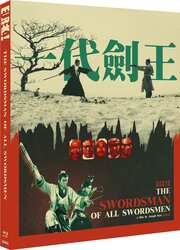






























































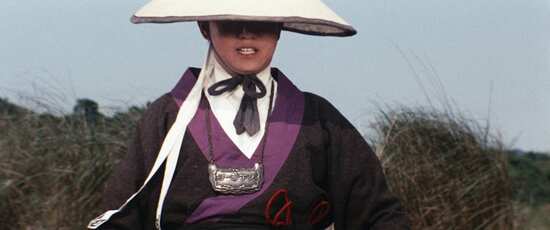
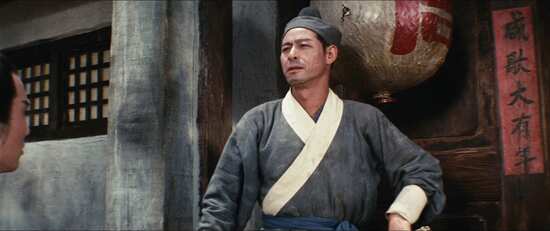
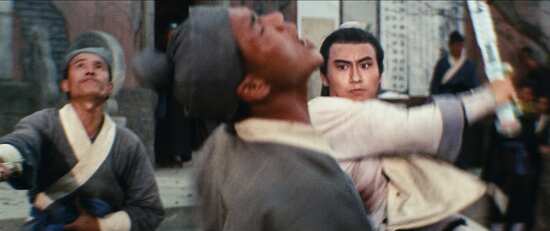
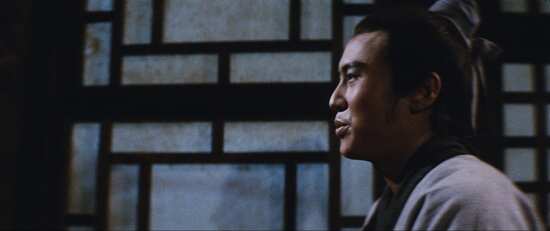
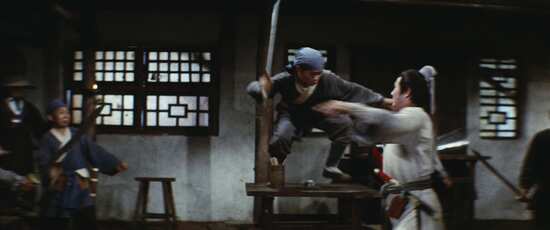
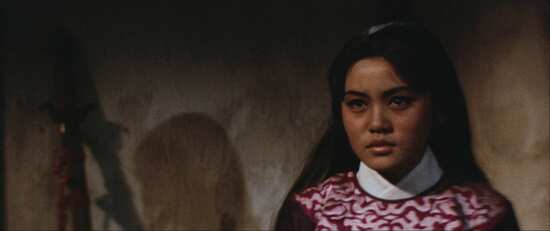
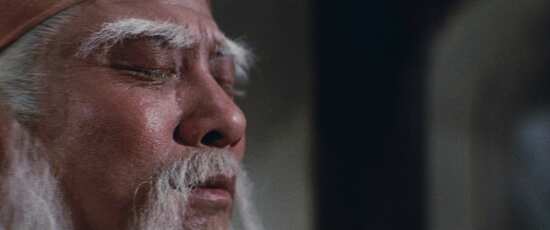
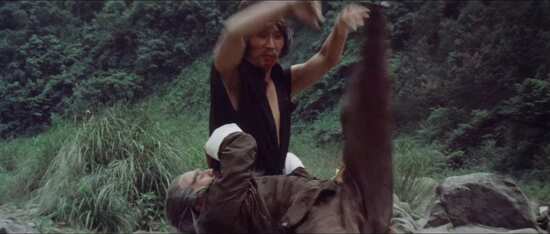
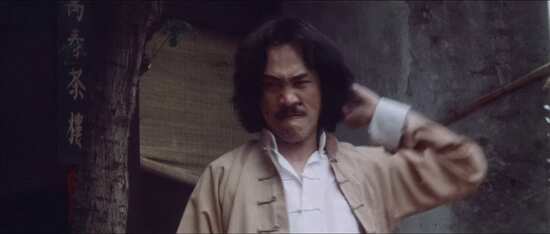
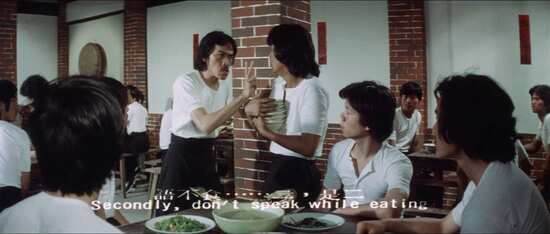
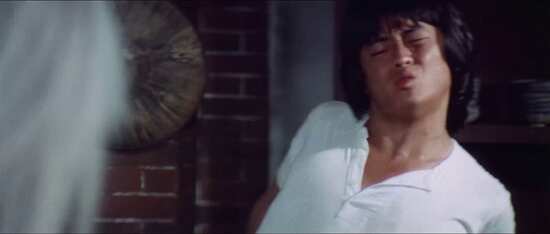
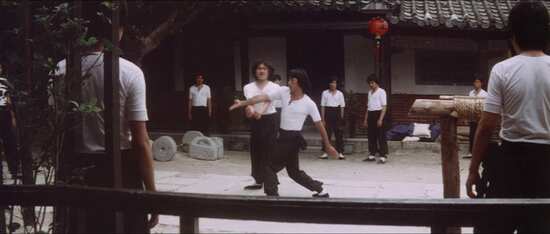
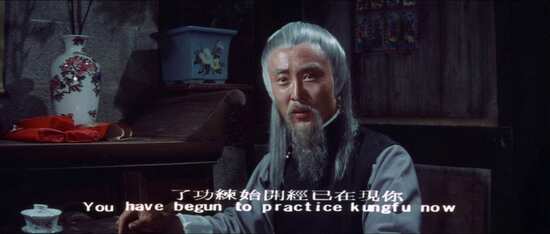
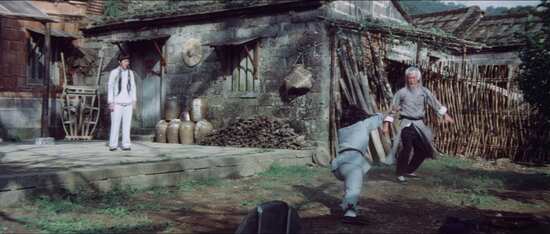
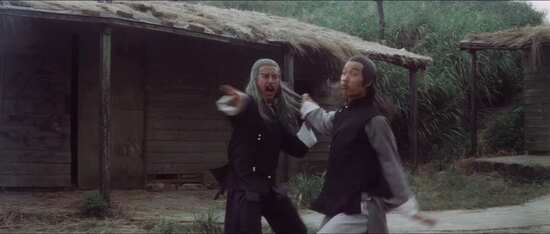
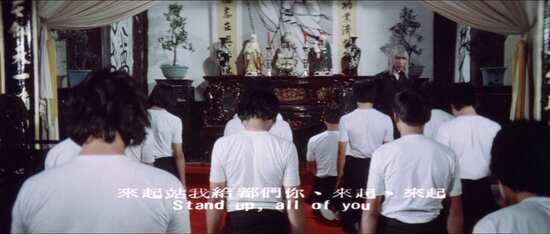
Your Opinions and Comments
Be the first to post a comment!